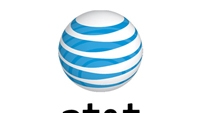Major high-tech companies support AT&T/T-Mobile merger
The professional video industry's #1 source for news, trends and product and tech information. Sign up below.
You are now subscribed
Your newsletter sign-up was successful

AT&T got the support of eight major technology companies and 10 venture capital firms in its effort to buy T-Mobile for $39 billion. Facebook, Microsoft and others filed letters of support for the merger with the FCC this week.
All supported AT&T’s argument that the T-Mobile deal will help the company extend its next-generation data network across the country. “Many policy-related efforts will not be able to quickly address near-term capacity needs,” the Microsoft-led group wrote. “The FCC must seriously weigh the benefits of this merger and approve it.”
AT&T’s viewpoint is not supported by Sprint and other service providers who said the merger would revive the “Ma Bell” scenario of an earlier era, leaving a duopoly that controls most mobile devices. That combination, they argue, will reduce service and raise prices.
Sprint, the nation’s third-biggest carrier behind Verizon Wireless and AT&T, has strenuously opposed the deal. “I am here because Sprint believes in competition, which goes hand in hand with innovation,” Daniel Hesse, Sprint’s CEO, testified at a Senate hearing last month.
AT&T has also found support from labor unions, particularly the Communications Workers of America.
The FCC and Justice Department are the agencies that have to decide if the merger is in the public interest. Their review could take a year. The deadline to file supporting comments for the deal is the end of this week.
Other companies supporting AT&T are Yahoo, Oracle and Research in Motion, maker of the BlackBerry personal communications device. Venture capital firms include Kleiner Perkins Caufield & Byers and Sequoia Partners.
The professional video industry's #1 source for news, trends and product and tech information. Sign up below.
The letters cite AT&T’s agreement that the T-Mobile merger would allow it to expand its 4G network to cover 97 percent of the country and add an additional 55 million Americans as customers.
“We quickly came to the conclusion that this is a good merger,” Fred Humphries, Microsoft’s vice president for United States government affairs, told the New York Times. Microsoft approached a few technology companies to support the deal, mostly those whose products would obviously also benefit from wider data pipelines, and received quick and positive replies, Humphries said.
Promod Haque, a managing partner of Norwest Venture Partners, told the newspaper that constraints on network capacity were harming new mobile applications and offerings.
“The lack of adequate spectrum is killing the quality of users’ experience,” he said. “Customers say, ‘I can’t even get a phone call and can’t get adequate reception. So you want me to use this new service?’ ”
Allowing AT&T to consolidate its network spectrum with T-Mobile’s is easier and more cost-effective than alternatives, Haque said.
Other notable high-tech companies did not sign on to support the deal. Apple is a major exception.
